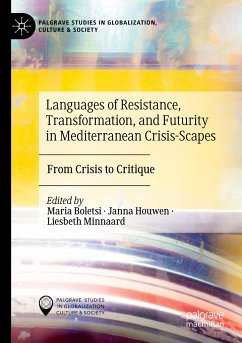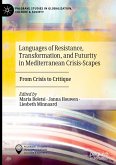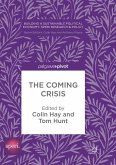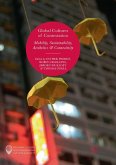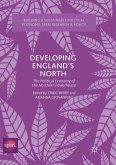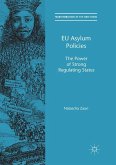This collection rethinks crisis in relation to critique through the prism of various declared 'crises' in the Mediterranean: the refugee crisis, the Eurozone crisis, the Greek debt crisis, the Arab Spring, the Palestinian question, and others. With contributions from cultural, literary, film, and migration studies and sociology, this book shifts attention from Europe to the Mediterranean as a site not only of intersecting crises, but a breeding ground for new cultures of critique, visions of futurity, and radical imaginaries shaped through or against frameworks of crisis. If crisis rhetoric today serves populist, xenophobic or anti-democratic agendas, can the concept crisis still do the work of critique or partake in transformative languages by scholars, artists, and activists? Or should we forge different vocabularies to understand present realities? This collection explores alternative mobilizations of crisis and forms of art, cinema, literature, and cultural practices across the Mediterranean that disengage from dominant crisis narratives.
Chapter 1 is available open access under a Creative Commons Attribution 4.0 International License via link.springer.com.
Chapter 1 is available open access under a Creative Commons Attribution 4.0 International License via link.springer.com.
"The book ... sets the ambitious goal to bring new meaning to this word and restore its semantic multiplicity. ... it offers a rich overview of the most important theoretical scholarship on the subject ... it concretely provides the reader with the means to reread and rethink contemporaneity under new points of view. In this sense, the book constitutes one of the most evident manifestations of the indispensable political role of cultural studies, and by extension, of contemporary humanities." (Francesca Zaccone, Journal of Greek Media & Culture, Vol. 8 (1), 2022)

